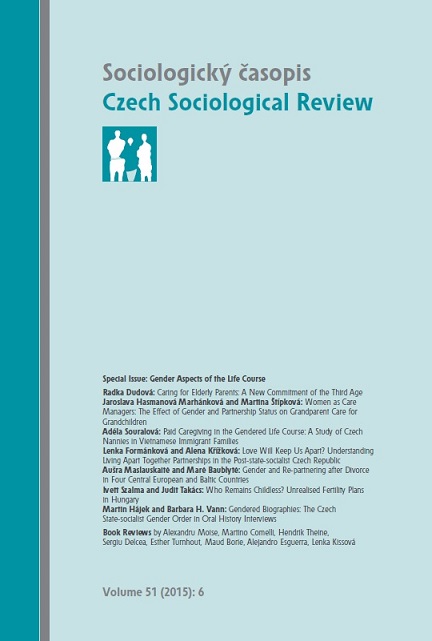Who Remains Childless? Unrealised Fertility Plans in Hungary
Who Remains Childless? Unrealised Fertility Plans in Hungary
Author(s): Ivett Szalma, Judit TakácsSubject(s): Sociology
Published by: AV ČR - Akademie věd České republiky - Sociologický ústav
Keywords: postponers; childfree articulators; childless due to reproductive health problems Hungary; Generations and Gender Survey
Summary/Abstract: This article focuses on remaining childless as a result of certain choices and constraints (not on becoming childless as a result of outliving children). There are two main aims of this study. First it seeks to reveal whether any specific features appear when (temporarily) childless people are compared with those having children in the same cohorts. It also aims to explore what kinds of factors can lead to childlessness (or more precisely, the prolongation of a childless period in life) among those men and women who, according to their self-assessment, were not prevented from having children by their own or their partner’s health constraints. The analysis draws on GGS data from the first three waves of the Hungarian panel survey ‘Turning Points of the Life Course’ conducted in 2001, 2004, and 2008. The focus is on men and women who were childless in 2001 and were still childless in 2008. According to the findings, events directly connected to childbearing, such as having a stable partner or not having a partner, living in cohabitation or in marriage, have more influence on decisions about becoming parents than normative expectations, while economic factors (such as having a job) have some impact mainly on postponing childbearing, but do not seem to influence directly whether people will remain childless.
Journal: Sociologický časopis / Czech Sociological Review
- Issue Year: 51/2015
- Issue No: 06
- Page Range: 1047-1075
- Page Count: 29
- Language: English

